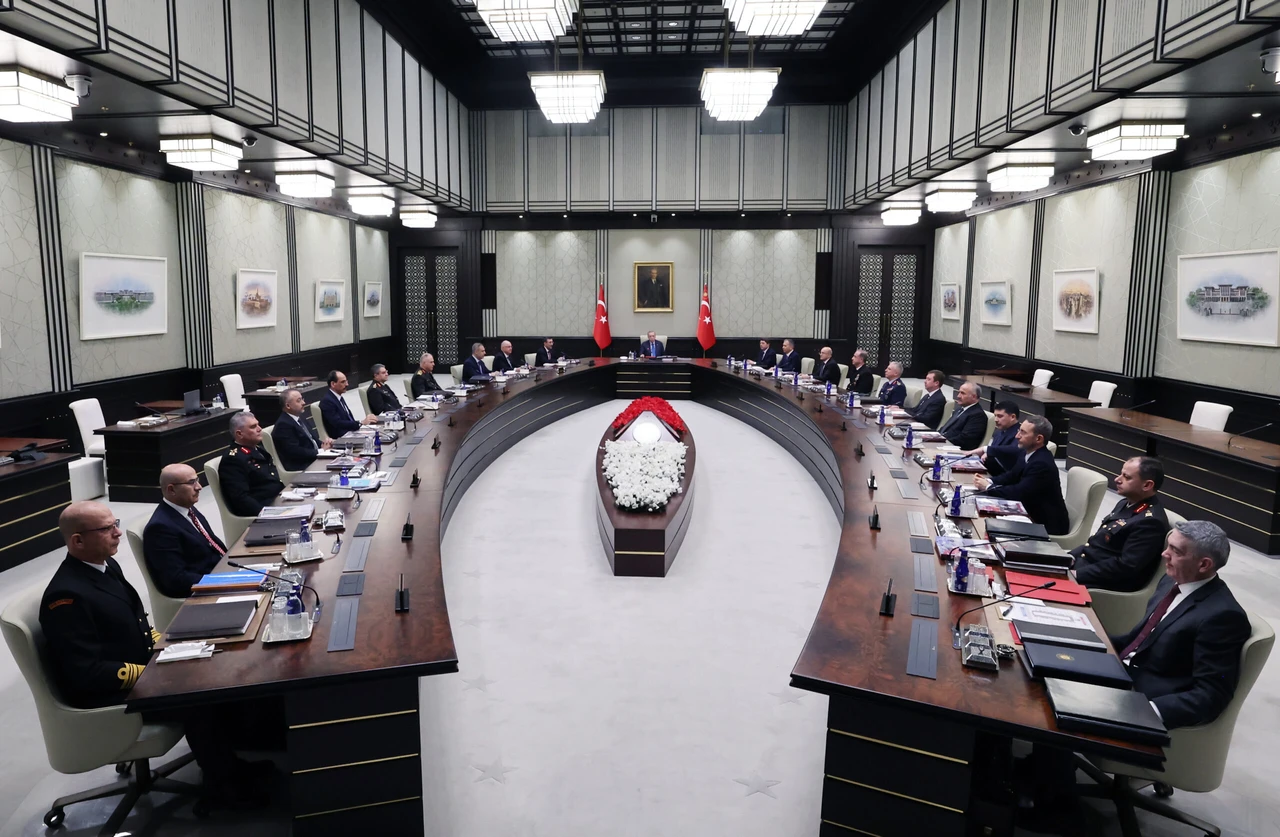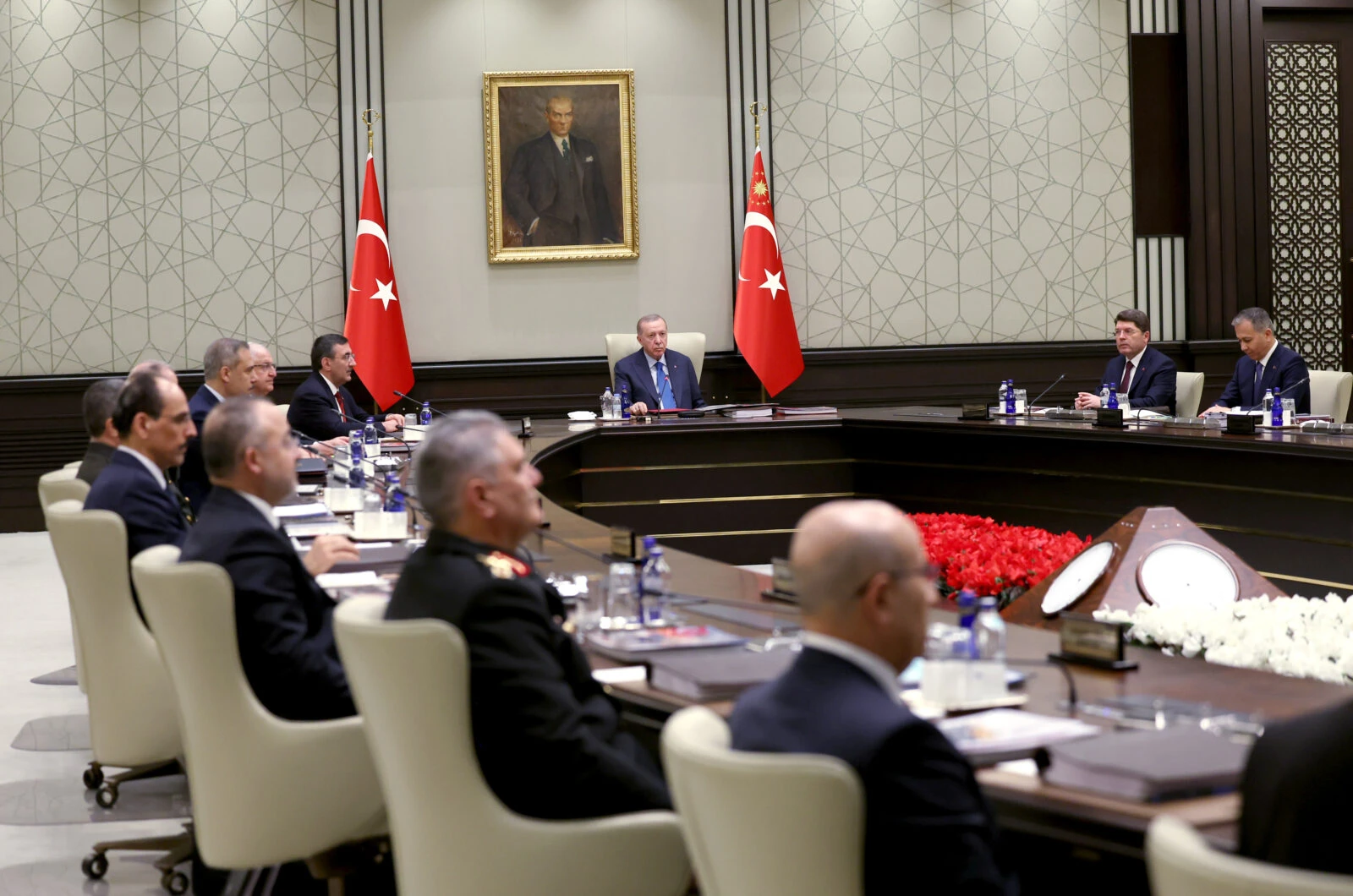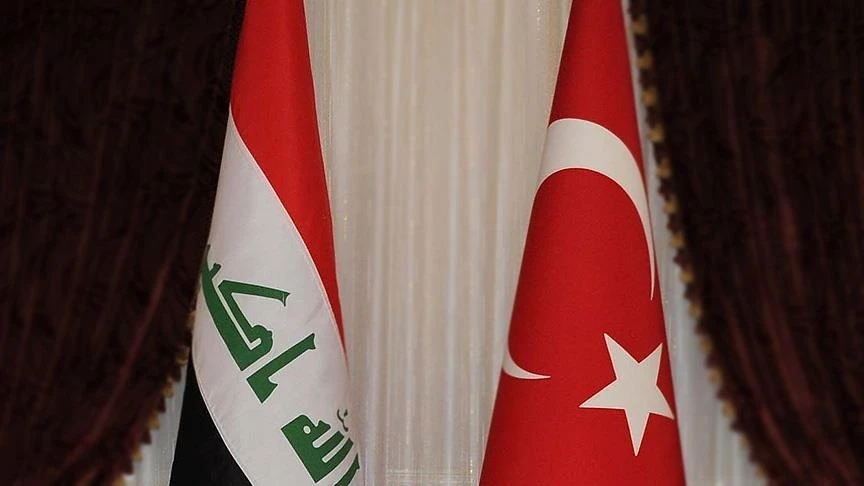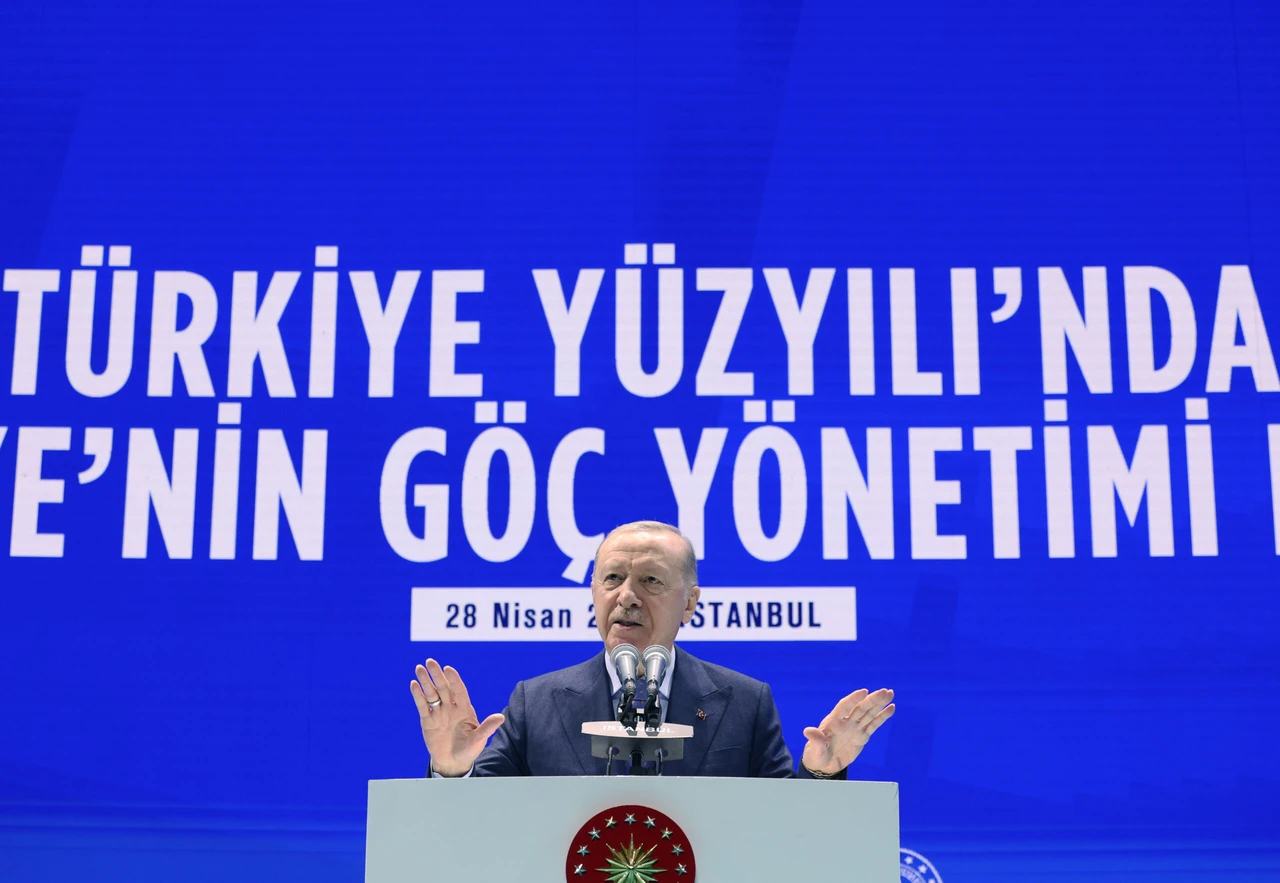Türkiye updates National Security Policy document at first NSC meeting of 2025
 President Recep Tayyip Erdogan chaired the National Security Council (NSC) Meeting at the Presidential Complex. (TCCB / Murat Kula - Anadolu Agency)
President Recep Tayyip Erdogan chaired the National Security Council (NSC) Meeting at the Presidential Complex. (TCCB / Murat Kula - Anadolu Agency)
Türkiye’s National Security Council (NSC) convened its first meeting of the year on Jan. 22 under the leadership of President Recep Tayyip Erdogan.
During the meeting, the council approved an updated version of the National Security Policy Document (NSPD), also known as the “Red Book,” which outlines Türkiye’s internal and external security strategies.
National Security Policy document renewed
The NSPD, regularly updated every five years or as needed, was revised to reflect Türkiye’s assessment of current and potential developments within the country, the region, and globally. A statement from the NSC declared:
“The National Security Policy Document has been renewed based on the evaluation of developments occurring and potentially occurring in Türkiye, the region, and the world, and it has been approved by the council. The NSPD-2020 has been replaced by NSPD-2025.”
The NSPD incorporates threat assessments from institutions such as the Ministry of Defense, the Ministry of Foreign Affairs, and the National Intelligence Organization. Its content remains classified and is implemented under the coordination of the NSC.

Terrorism remains primary concern
The updated document highlights terrorism as a continuing internal threat, with the PKK listed as the primary concern.
While Türkiye has significantly reduced the terrorist group’s operational capacity within its borders, the PKK continues to maintain a presence in northern Iraq and Syria. YPG is PKK’s Syrian offshoot.
To counter this, Türkiye has strengthened its security cooperation with Iraq. In 2024, both nations finalized a comprehensive security cooperation agreement, which includes counterterrorism measures.
Iraq has since listed the PKK among “banned organizations,” aligning with Türkiye’s aim of securing its designation as a terrorist group in the region.

Emerging threats and international developments
The NSPD addresses risks associated with the transition from a rules-based international order to a multipolar system.
It also identifies artificial intelligence as a potential threat, reflecting the evolving nature of global security concerns.



